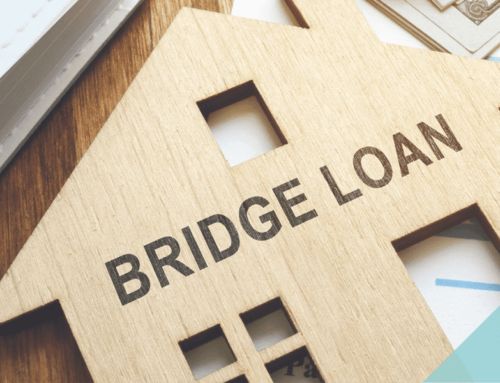Purchasing a property at an auction can be an exciting and potentially rewarding experience. Here at Attwells Solicitors our lawyers specialise in auction conveyancing and can help you through the legal process of buying or selling at Auction.
We provide property investors with legal pack reviews, both summary and full plus we can help you with completion work.
But how do you get started? To help you we have outlined the 8 stages of buying at Auction. Plus the 9 stages to selling.
How do you purchase a property at auction?
- Research: Start by researching upcoming auctions in your area. Look for reputable auction houses or agent estate websites that specialise in property auctions. Gather information about the properties being auctioned, including their location, condition, and any applicable terms or conditions.
- Pre-auction due diligence: Before the auction, conduct thorough due diligence on the properties you’re interested in. This may involve inspecting the property, reviewing legal documents, checking for any liens or encumbrances, and assessing its market value. It’s crucial to understand the risks and potential issues associated with the property.
- Financing: Determine how you will finance the purchase. Some auctions require bidders to have financing in place before participating. If you plan to secure a loan, arrange your financing in advance and ensure you have the necessary funds available or pre-approval from a lender.We have a useful YouTube video covering this topic, where we interview Richard from Clear Idea Finance. You can watch it by clicking here.
- Attend the auction: On the day of the auction, arrive early and register as a bidder. You’ll typically need to provide identification and may need to pay a refundable deposit or provide proof of funds.
- Set your budget: Determine your maximum bid amount based on your financial capacity and the property’s value. It’s important to stick to your budget and avoid getting caught up in bidding wars that exceed your limit.
- Bidding process: Auctions can be competitive and fast-paced. The auctioneer will announce the terms and conditions before starting the bidding. Many auctions now take place online, in virtual auction rooms, similar to eBay. Increments vary but usually, increase in set amounts. Continue bidding until either you win or reach your maximum budget.
- Winning the auction: If you’re the highest bidder and meet any reserve price or other conditions, you’ll win the auction. The auctioneer will confirm the sale and may require you to sign a contract and pay a deposit immediately. Ensure you understand the payment and settlement terms.
- Post-auction procedures: After winning the auction, you’ll need to complete the necessary paperwork, pay the remaining balance, and finalize the sale within the specified timeframe. Work with your solicitor or conveyancer to handle the legal aspects of the transaction.
How do you sell a property at Auction?
- Choose an auction method: There are different types of auctions, including traditional live auctions, online auctions, or a combination of both. Research auction houses or online auction platforms that specialise in property sales and select the method that best suits your needs.
- Select an auctioneer or auction platform: Find a reputable auctioneer or auction platform that has experience in selling properties similar to yours. Consider their track record, marketing strategies, reach, and commission structure. It’s essential to work with professionals who will represent your interests effectively.
- Appraisal and valuation: Obtain a professional appraisal or valuation of your property to determine its market value. This information will help you set a realistic reserve price or guide you in establishing the auction’s opening bid.
- Determine the terms and conditions: Work with your auctioneer to establish the terms and conditions of the auction. These may include the reserve price (minimum acceptable bid), auction date and time, deposit requirements, settlement period, and any specific terms applicable to your property.
- Marketing and promotion: The auctioneer will create a marketing campaign to generate interest in your property. This typically includes online and offline advertising, listing on relevant websites, signage, brochures, and targeted outreach to potential buyers. Ensure the marketing strategy aligns with your goals and reach.
- Open inspections: Conduct open inspections to allow potential buyers to view the property before the auction. This gives them an opportunity to assess its condition and ask any relevant questions. Coordinate these inspections with your auctioneer and ensure the property is presented in its best possible state.
- Auction day: On the auction day, the auctioneer will conduct the auction following the established terms and conditions. Prospective buyers will bid on the property, and the auctioneer will manage the bidding process until the highest bid is reached or the property is sold.
- Sale completion: If the highest bid meets or exceeds the reserve price, the property will be sold at the auction. The winning bidder is typically required to sign the contract and pay a deposit immediately. They will then proceed to complete the sale by settling the remaining balance within the agreed timeframe.
- Post-auction procedures: Work with your solicitor or conveyancer to finalise the legal aspects of the sale, such as title transfer and any necessary paperwork. Ensure all settlement obligations are met promptly to complete the transaction.
Selling a property at auction can have advantages, but it’s important to understand the potential risks and costs involved. Therefore we recommend you consult with an auction specialist who can guide you through the process and provide tailored advice based on your specific circumstances.
Equally, it’s important to note that auction processes and regulations can vary depending on the auctioneers you use. Therefore you will need to familiarise yourself with the specific procedures and requirements of the auction you plan to attend.
For more information regarding buying and selling a property at auction please visit our Podcast. Our episode on buying and selling at auction would be a great starting point. Click here to listen.





